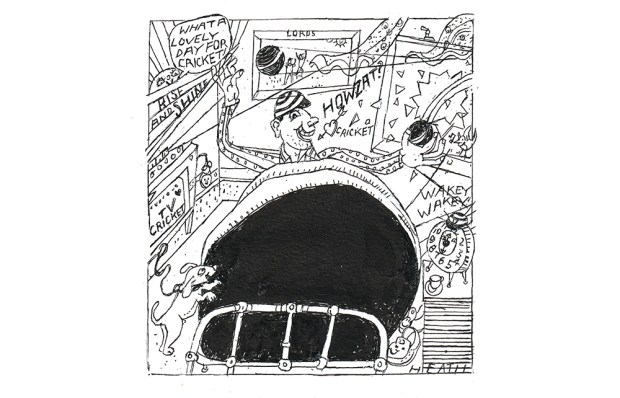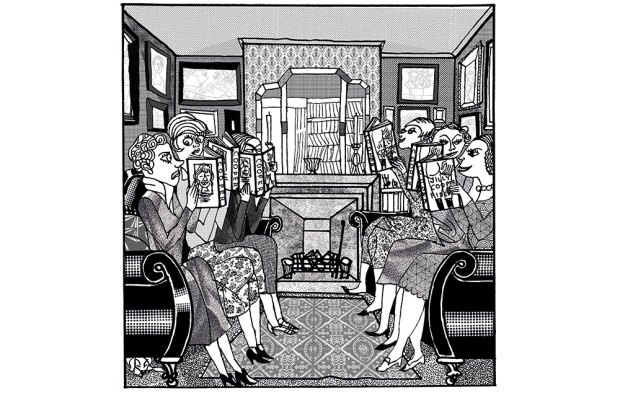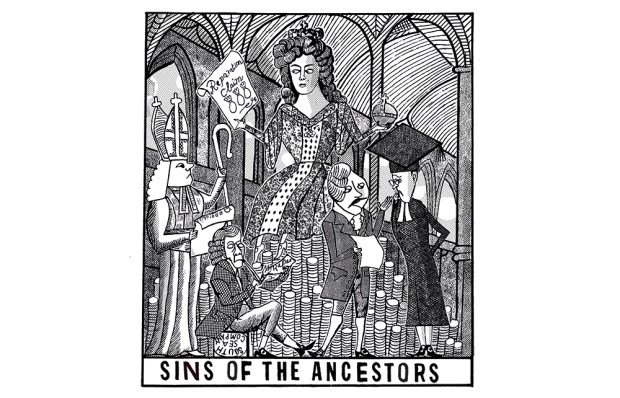Have you ever claimed to be ‘not racist’? If so, sorry, but you’re a bigot. Should this seem incoherent, then you’re clearly not well versed in critical race theory: a once niche academic field that has gone mainstream and popularised concepts such as ‘white privilege’, ‘white fragility’ and ‘systemic racism’. According to Ibram X. Kendi, author of How to Be an Anti-Racist, ‘the claim of “not racist” neutrality is a mask for racism’. Alana Lentin, author of Why Race Still Matters, takes it a step further, arguing that to be ‘not racist’ is ‘a form of discursive racist violence’. If you declare yourself not racist, it’s an unequivocal sign you’re an unrepentant white supremacist.
Confused yet? It gets worse. To be truly committed to racial equality, theorists argue, one must be ‘anti-racist’. Of course, no civilised person would be in favour of racism, so ‘anti-racism’ sounds a wonderful idea. However, it does not mean, as one might presume, ‘to be opposed to racism’. Rather, it is a core tenet of critical race theory which presupposes that racism permeates all human interaction. In other words, failure to observe racism does not mean that it is absent, but rather that one has not successfully detected it. As Helen Pluckrose and James Lindsay put it in their book Cynical Theories, the question is not ‘Did racism take place?’ but ‘How did racism manifest in that situation?’ Those trained in critical race theory are apparently uniquely qualified to make such determinations; the rest of us have to take them on faith.
Across the country, institutions and businesses are falling over themselves to assert their credentials in line with this new trend. Sadiq Khan has declared City Hall to be ‘a committedly anti-racist organisation’. The British Library has an ‘Anti-Racism Action Plan’ which has led its management to pledge that it would review its collections, ‘powerfully reinterpret’ statues of its founders, and put writers such as Ted Hughes on a watchlist because of tenuous connections to ancestors who may have been involved in the slave trade. (The inclusion of Hughes this week proved to be a genealogical mistake for which the library apologised.) Channel 4 refers to itself as ‘an anti-racist organisation’ and has created a number of adverts in collaboration with major supermarkets to promote an ‘anti-racism message’. Even the Girl Guides’ website claims that ‘it isn’t enough to not be racist, we must be actively anti-racist’.
Let us consider a recent statement by Professor David Richardson, chair of the advisory group for Universities UK. Given that his words embody so much of the circular reasoning of critical race theory, it is worth quoting in full:
A lot of people think it’s OK to say: ‘I’m not a racist, I don’t believe in racism.’ We need to go further than that. We need to be actively anti-racist, and to be actively anti-racist people need to understand better the issues that those suffering from systemic racism in our institutions are facing and where they are facing them. And unless you are really educated in that, unless you’re trained in that, you won’t have that full understanding. What you might call overt racism is the tiny tip of the pyramid under which sits covert racism, and unless you have the lived experience I don’t think you fully understand the extent of that covert racism that pervades across our institutions.
The charge of systemic racism must be taken seriously, because it is clearly possible for institutions to maintain discriminatory policies. Any such charge, though, requires thorough investigation; it should not be asserted as though it were self-evident. The theorists’ standard tactic is to interpret any challenges to claims of systemic racism as additional proof that it exists. When Phillip Schofield questioned whether press coverage of Meghan Markle had been motivated by racism, his words were taken as an example of his ‘white privilege’ and further evidence of the pervasiveness of racist thought.
The most damaging aspect of this mindset is that it renders impossible the task of rooting out racism. Falsely assuming that racism is everywhere, and insisting that people fundamentally opposed to discrimination are nonetheless complicit in white supremacy, is guaranteed to engender resentment and sow racial division. Moreover, it provides cover for genuine bigots who are able to claim a degree of support they simply do not have. When Richardson appeals to ‘lived experience’ in lieu of data, he is making the case that anecdotal evidence somehow provides a secure basis for analysis. Worse, he is disregarding the experiences of those who do not share his worldview. In short, ‘lived experience’ seems to matter only if it conforms to certain preconceptions.
A Guardian investigation into racism at UK universities last year demonstrates how research can be interpreted to prove the opposite of what it reveals. Statistics from 131 universities found that from 2014 to 2019 there were 996 formal complaints of racism, of which 367 were upheld. On average, therefore, there were only 1.5 formal complaints each year in any given institution, with only 73 upheld among a university population running into the millions. The Guardian’s front-page headline told a different story: ‘Revealed: the scale of racism at universities’. According to the article, the data constitutes ‘widespread evidence of discrimination’ and shows racism in higher education is ‘endemic’. When journalists, academics and politicians advance a worldview in direct opposition to the observable truth, they risk creating what’s known as a ‘legitimation crisis’ by which trust in figures of authority is irreparably depleted.
The concept of anti-racism is rhetorical sleight of hand. It is an illiberal notion couched in liberal terms. It sounds bold, virtuous and active. No wonder so many well-intentioned people are declaring themselves to be ‘anti-racist’ with little understanding of its divisive implications. The debate is a difficult one, because identity-obsessed ideologues express their ideas through jargon that often distorts conventional usage. The effect of this slippery language is to make rebuttals seem counter-intuitive. Nonetheless, those of us who care about equality must find a way to make the message clear, in spite of the linguistic minefields we are obliged to navigate. However odd it might sound, in order to oppose racism one must be opposed to anti-racism.
Got something to add? Join the discussion and comment below.
Get 10 issues for just $10
Subscribe to The Spectator Australia today for the next 10 magazine issues, plus full online access, for just $10.
You might disagree with half of it, but you’ll enjoy reading all of it. Try your first month for free, then just $2 a week for the remainder of your first year.












Comments
Don't miss out
Join the conversation with other Spectator Australia readers. Subscribe to leave a comment.
SUBSCRIBEAlready a subscriber? Log in